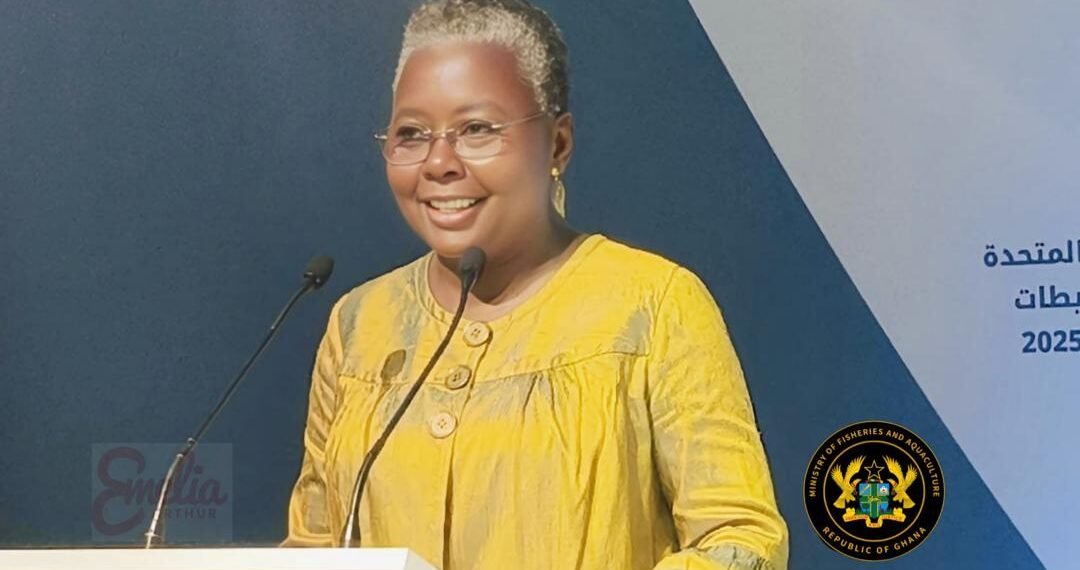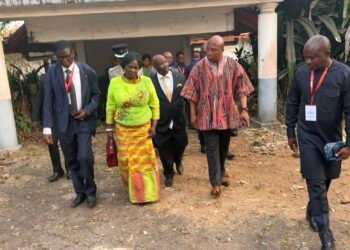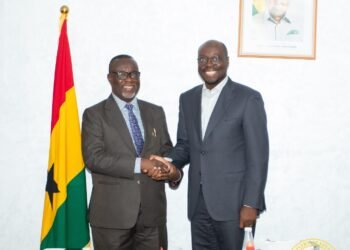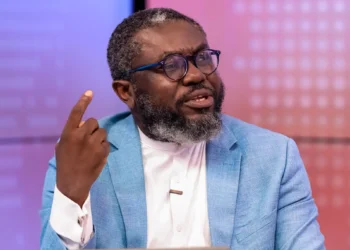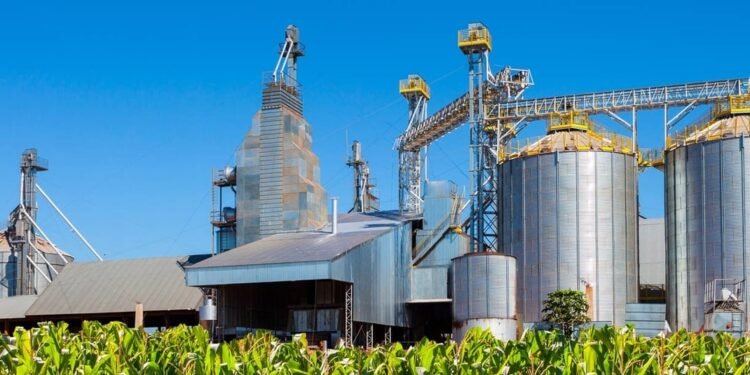Ghana’s Minister for Fisheries and Aquaculture Development, Hon. Emelia Arthur, has given firm assurances that the Fisheries College at Anomabo in the Central Region will be completed and operationalized by the end of the year.
She made the announcement during her remarks at the Government Accountability Series, emphasizing the high-level commitment from President John Dramani Mahama and Vice President Professor Naana Jane Opoku-Agyemang to seeing the long-delayed project reach fruition.
According to Hon. Arthur, the Ministry of Fisheries and Aquaculture Development has secured funding from the Ministry of Finance to facilitate the completion and activation of the college.
“Following a directive from the president, the ministry has received funding from the Ministry of Finance to complete the fisheries college in Anomabo and operationalize it”.
An amount of GH₵80 million has been allocated for this purpose, with ongoing procurement processes to enable contractors to return to site. She assured the public that all works would comply with the provisions of the Public Procurement Act to ensure transparency and value for money.
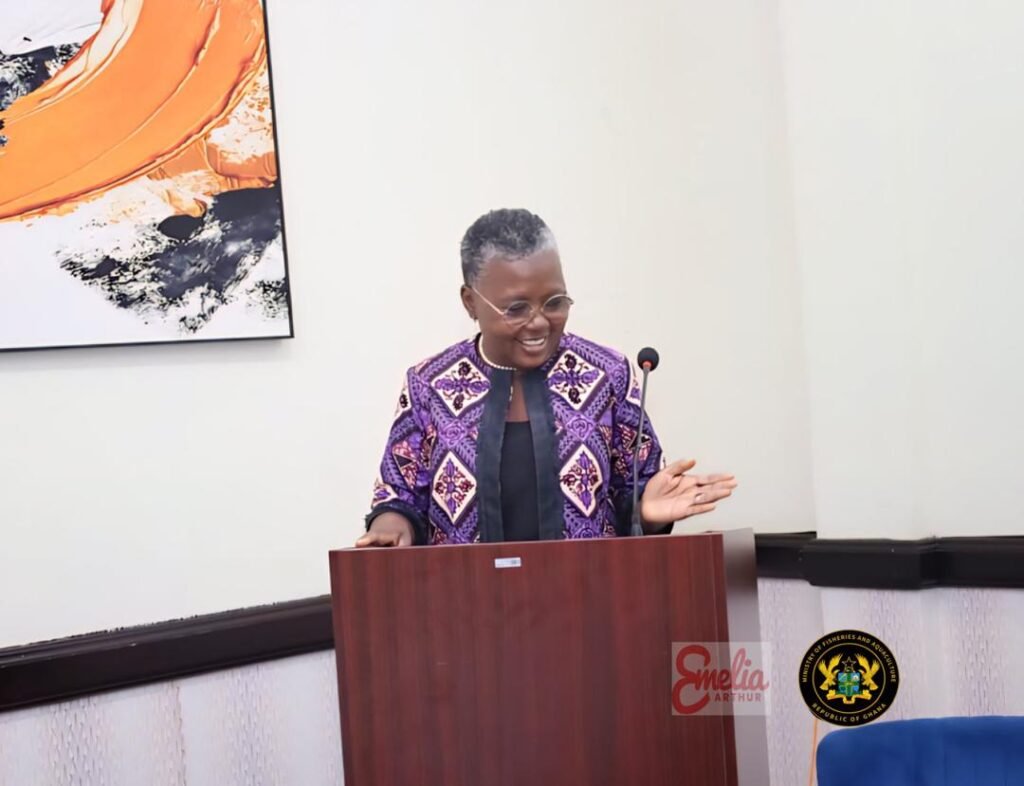
The college project, a significant initiative started in 2011 under the previous National Democratic Congress (NDC) administration, was designed to serve as a national hub for training professionals in fisheries and aquaculture.
However, after a change of government in 2017, the project was left incomplete, leaving its facilities to deteriorate and its intended objectives unrealized.
Now revitalized under the renewed presidency of John Mahama, the college is being given a new lease of life. Hon. Emelia Arthur indicated that both President Mahama and Vice President Opoku-Agyemang have issued a direct and non-negotiable mandate to see to the timely delivery of the project.
“I have been given ultimatum by both the President, H.E. John Dramani Mahama, and Vice President Professor Naana Jane Opoku-Agyemang to see the completion of the college,” she emphasized, signaling the administration’s determination to strengthen education and capacity building in the fisheries sector.
The facility, located in Anomabo, comprises a suite of important infrastructure components, including lecture theatres, a principal’s bungalow, fish ponds, boreholes, and a water pumping station.
It is designed to admit up to 300 students, offering a specialized academic environment dedicated to the study of sustainable fishing practices, marine resource conservation, and aquaculture development.
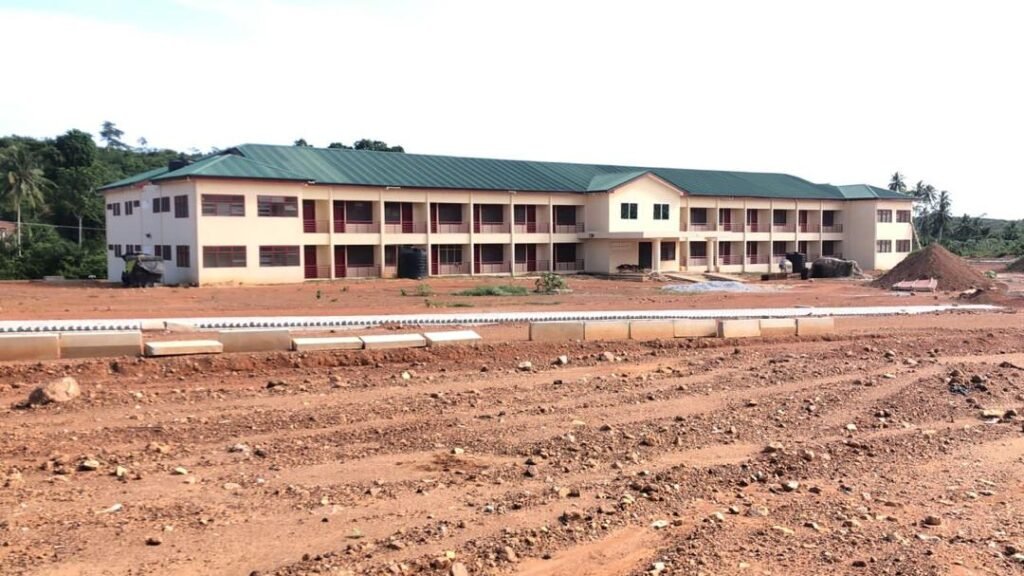
The minister believes that once completed and fully operationalized, the Anomabo Fisheries College will play a pivotal role in transforming Ghana’s fisheries sector into a more modern, sustainable, and scientifically managed industry.
It is also expected to support the long-term livelihoods of fishing communities, while enhancing research and innovation in marine and inland aquaculture.
She also indicated that her ministry would not relent in ensuring that technical and academic standards are maintained, and that the college, when opened, is positioned to attract capable professionals and students passionate about the sector.
Plans for curriculum development and staff recruitment, she hinted, are already in motion to match the pace of the physical works on site.
The push to complete the Anomabo Fisheries College comes at a time when Ghana’s fisheries and aquaculture sectors are confronted with a host of challenges, including overfishing, marine pollution, and dwindling fish stocks.
The operationalization of the college is thus seen as an important intervention that can equip a new generation of trained professionals to tackle these issues more effectively.
This recommitment also reflects the Mahama administration’s broader agenda of reviving stalled infrastructure projects and prioritizing investments in education as a tool for national development.
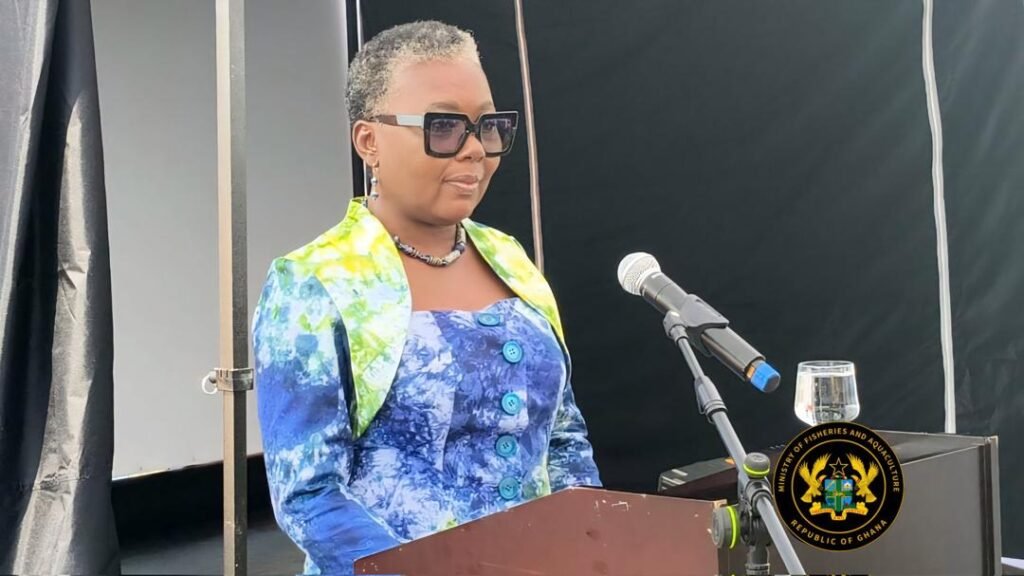
Stakeholders within the fisheries value chain have long advocated for the college’s completion, citing its potential to contribute significantly to sectoral research, job creation, and the promotion of best practices in fish farming and coastal resource management.
For Hon. Emelia Arthur, the stakes are high, but the political and administrative backing she has received suggests that the Anomabo Fisheries College may soon fulfill the promise envisioned when it was first conceived over a decade ago.
READ ALSO: New Fisheries Law Aims to Rescue Ghana Fisheries Sector from EU Sanctions -Minister

